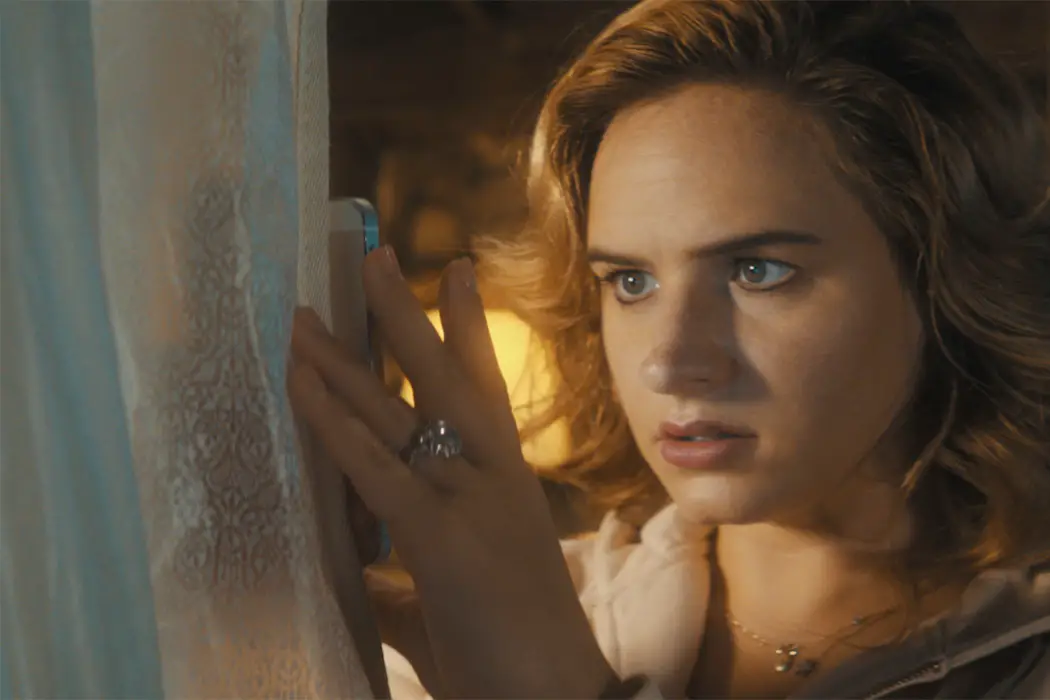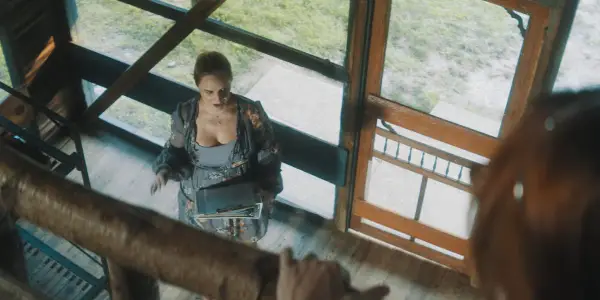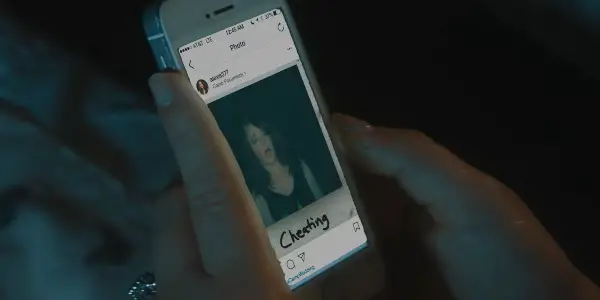CAMP WEDDING: Confusing Horror-Comedy That Doesn’t Quite Work

Zoe Crombie is a Film Studies student from Lancaster University,…
As a woman from England who never really enjoyed sleeping in a bed other than my own, the popularity of summer camps in America has never ceased to confuse me. Why would you want to go and live with a bunch of kids you’ve never met in an environment likely far stricter than your own at home? I realize that for more outdoorsy, sporty kids and those less close to their parents, these places must be a haven, but nonetheless, I struggle to associate them with anything other than excruciating peppiness, and more positively with slasher horror movies from the 1980s.
Rather than tapping into the inherent campiness (it’s in the name, guys) present in the idea of using one as the setting, Camp Wedding is instead a dull and convoluted exercise in taking a promising concept and doing very little with it.
Premise
Bride-to-be Mia (Kelley Gates), in an attempt to save some money as well as to fulfill the faux-vintage Pinterest aesthetic, has booked out a crumbling summer camp as the venue for her dream wedding. Having brought along some reluctant friends to help spruce the place up with mason jars and fairy lights, they soon discover that all is not what it seems and a mysterious killer is on the loose – not too surprising considering that the history of the camp includes witch burnings and the genocidal slaughter of Native Americans.

Initially (to me at least), this premise sounded like a kitschy, loving parody of 1980s slashers, that would knowingly harp on tropes with a cultish affection. But, despite the punny title suggesting otherwise, this wasn’t the experience I had – instead, the film had none of the sensationalism or scares of a horror flick, and none of the emotional relatability of a comedy either.
Aesthetic And Visual References
The influence that Sherlock has had on independent filmmakers worldwide may be most potently felt in the increasingly popular use of characters texting one another with the messages appearing in a bubble next to them onscreen. For director Greg Emetaz, this became not just an occasional aesthetic choice, but the basis of how he communicates the majority of information to his audience in Camp Wedding. Rules, of course, were made to be broken, but the lack of “show, don’t tell” here is the difference between visuals featuring steamy affairs, brutal murders, and other such shocking events, and texts simply informing us that these things have occurred somewhere offscreen.
As so much of horror is so dependent on a distinct, unnerving, shocking aesthetic, the repeated use of this technique results in a movie plagued by one of the worst sins a film attempting to laugh/scare you can commit: being boring. Instead of being stuffed full of references to slasher classics with the same setting like Friday the 13th and Sleepaway Camp, the use of the camp location feels almost incidental for a large part of the runtime, until a rushed and unsatisfying explanation in the final 15 minutes.
Character-Driven, But Why?
The balancing act of combining comedy with horror isn’t just a question of aesthetics, however: there is also the issue of whether the characters are written to be disposable. Sure, in most acclaimed horror films the characters have a certain level of complexity, but in the camp based slashers Emetaz is referencing, the people being offed tend to have about as much substance as a rice cake.
This isn’t a criticism, as the reason you watch a slasher isn’t to relate to the compelling characters; you’re there to sadistically watch them die in various weird and wonderful ways. The issue with Camp Wedding is that, despite spending most of its runtime on establishing the issues of the different (often quite unpleasant) characters, it never gives you a reason to truly care about them – and then you aren’t even given the gross enjoyment of watching a madman take them out with a machete.

Instead of padding out the plot with an excess of characters all connected through increasingly complicated means, I feel as though the focus should have really been on either a select few people we are given the chance to get attached to, or on creating atmosphere and intensity.
Conclusion: Camp Wedding
By presenting a comedy with the formal elements of a slasher, Camp Wedding fails to be interesting or entertaining within either genre. This definitely isn’t Cabin in the Woods or even The Babysitter, and as a murder mystery, the overload of exposition delivered in a tedious way removes any real intrigue from what’s really going on – it’s telling that the film spends so much time explaining itself at the end, because otherwise I would have had no clue what was going on, and frankly I wasn’t given any reason to care about what was really happening anyway.
What did you think? Did you enjoy Camp Wedding‘s murder mystery? Let me know in the comments!
Camp Wedding premiered at the Nevermore Film Festival on March 8, 2019.
Does content like this matter to you?
Become a Member and support film journalism. Unlock access to all of Film Inquiry`s great articles. Join a community of like-minded readers who are passionate about cinema - get access to our private members Network, give back to independent filmmakers, and more.
Zoe Crombie is a Film Studies student from Lancaster University, who has been writing for Film Inquiry since May 2018 as well as at her own site Obsess Reviews. She is a big fan of Studio Ghibli and The Marx Brothers, but is willing to watch anything and everything.













